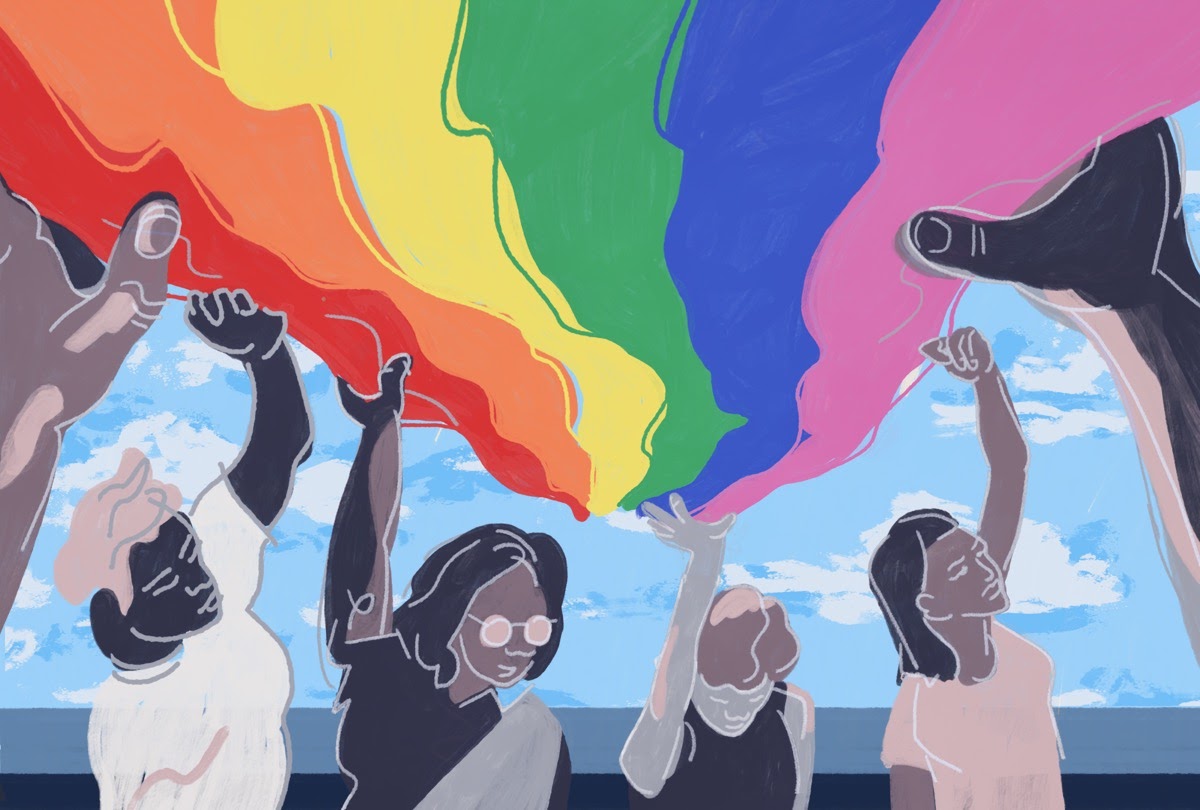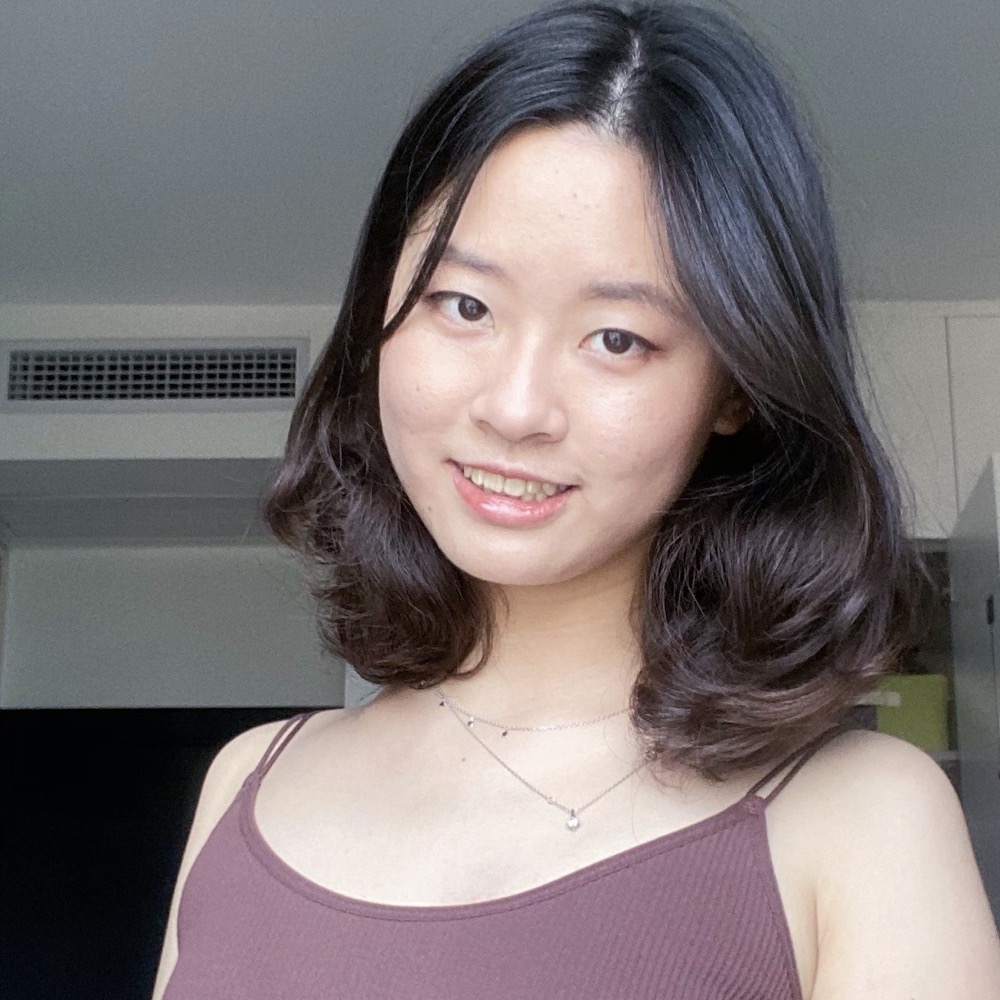‘The entire sky’: A brief history of China’s lesbian activism
Early lesbian activists in China had to deal with marginalization from within the queer community. Today, some feel that the gender disparity in the movement still persists.

It was the summer of 1995. The Fourth World Women’s Conference was taking place in Beijing. About 90 minutes away from the main event was an NGO forum in Huairou, where tents were set up representing different platforms for people to engage as they wished. There were tents for women’s global leadership, for reproductive health, and more. And perhaps most notably: there was a lesbian tent.

Susie Jolly arrived in Beijing in 1994 as an employee of the United Nations. She spoke Mandarin, owing to her studies at Hubei University in the mid-’80s. Through two gay men she met in Belgium, she got connected with members of the LGBQ community in Beijing, but during the women’s conference, she noticed that Chinese women were scarce around the lesbian tent. She decided she would become a link for her friends and lesbian activists around the world.
Her house parties became a hub for China’s newfound gay (同志 tóngzhì) scene. They were loud and bold, constantly attracting new participants: local and foreign, men and women. By 1996, people started meeting in carefully identified gay-friendly clubs and bars while organizing political discussions outside of parties.
A movement was underway. Unfortunately, tensions were, too. In 1997, China’s first Gay and Lesbian National Conference ended with lesbian participants feeling discouraged by the centering of gay voices and issues. Dissatisfied, they hosted the first lesbian conference in 1998.
Out of this conference grew Beijing Sisters Group (北京姐妹小组 Běijīng jiěmèi xiǎozǔ), an organization that allowed queer Chinese women to focus on their unique needs for the first time. They created a lesbian hotline for cross-province communication and founded Sky, the first lesbian magazine. The name was a reference to a popular women-focused radio show at the time called “Half the Sky,” which is itself a reference to Mao’s famous saying that “women hold up half the sky.”
The Sisters Group was more ambitious. Their hopes and dreams would not be contained. Fighting against both sexism and homophobia, their vision for equality was more radical, more expansive. In a 2010 interview with the Beijing NGO Common Language, Kim, an active participant in Beijing Sisters Group, explained: “We wanted more than half. We wanted the entire thing.”

Early lesbian activists in China had to deal with marginalization from within the queer community. Today, some feel that the gender disparity in the movement still persists.
Xiǎo Yáng 小阳, who became a core member of the Guangzhou-based lesbian organization Girlfans (established in 2009) after graduating university in 2016, said that queer women face unique challenges from the intersection of gender and sexuality: their identities are more easily erased and their political needs more easily overlooked. “There is always a power imbalance in terms of gender,” she says. “And as organizers who work primarily with women, we need to constantly examine and seek to minimize power structures in our community. Being ‘lesbian-only’ helps with that.”
Xiǎo Lěng 小冷 first became involved in LGBTQ activism 2015, when she started volunteering for a gender and sexuality educational NGO as a high school student. Currently a college senior, she runs a leadership program for queer youth that focuses on empowering them to tell their personal stories and organize queer spaces in school. Although she feels that gender imbalance is not an issue in her organization, she notes that many LGBTQ organizations remain majority-male, which is worrying to her. “When the LGBTQ movement lacks female perspectives, it remains patriarchal in values,” she says. To her, the solution is not to create a separate movement, but to make more space for lesbian and bisexual women in the existing one. “The key is to see each other’s perspective and needs. Reaching mutual understanding is not instinctual to people. But gender rights movements are themselves an overcoming of instincts.”

As social media becomes an extension of our public sphere, for better or for worse, online queer discourse has been given new political significance. In April 2019, Weibo banned the hashtag #les, which had previously served as a safe space for lesbians to socialize online. The ban came on the anniversary of Weibo’s April 2018 censorship of LGBTQ content, which led to a massive backlash. Support flooded in from all corners of the internet, with prominent feminists serving as outspoken allies. Weibo eventually backtracked.
Following Taiwan’s legalization of same-sex marriage in 2019, however, there was a rupture between some radical feminists and LGBTQ activists. In the past few years, anti-marriage sentiments on the internet have been steadily growing. Young women, increasingly aware of pervasive gender inequality, believe marriage is an inherently oppressive institution. A popular thing to comment under news of high-profile cases of domestic violence or femicide is “不婚不育保平安” (bù hūn bù yù bǎo píng’ān) — which means “protect yourself by not marrying or having kids.” Some have even taken to calling married women who defend traditional conventions — like allowing their children to share a family name with their husband — hūn lǘ 婚驴, “married donkeys.” The question of same-sex marriage legalization is therefore fraught with tension.
Guozili, a self-described radical feminist with more than 110,000 followers on Weibo, was one of the most vocal in voicing her concerns. “Equating gay and lesbian rights with the right to be married is inherently ludicrous,” she wrote (in Chinese) in a post on May 18, 2019. Later, more explicitly, she exclaimed: “When Taiwan legalized same-sex marriage, people were happy to chant: ‘Love won!’…Love did not win — patriarchy did.”
Another source of opposition to same-sex marriage stems from the perceived trend of gay men campaigning to legalize surrogacy, which many feminists in China see as a threat to women’s body autonomy. The Weibo hashtag #坚决反对一切形式的代孕 (jiānjué fǎnduì yīqiē xíngshì de dàiyùn, “Oppose All Forms of Surrogacy”) has over 1 billion views and 187,000 posts, with some posts exposing gay men who have had children via surrogacy.

In narrating the long fight for rights and recognition, it is sometimes easy to forget the joy. Celebration in the face of repression is resistance. The 2015 documentary We Are Here, produced by Shí Tóu 石头 and Zhào Jìng 赵静, portrays the struggles that early activists went through while also capturing the vibrancy of the movement, the friendships and relationships that blossomed.
As she prepares for life after graduation, Xiao Leng says that activism will be a part of her life no matter what she ends up doing. When asked about her future plans, she says: “I don’t think of queer activism as a grand vision. It’s the accumulation of the lives of real people: their joy, their anger, their pain, their felicity.”
Today, 25 years after the lesbian tent in Huairou, the largest lesbian online community is the group “Les Sky” on Douban, known in Chinese as 天空组 (tiānkōng zǔ). In this thriving space with more than 340,000 members, queer women share personal stories, seek advice, and offer encouragement to one another. They joke. They create. They persist, wanting not just half, but the entire sky.






